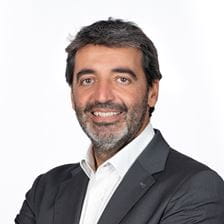In recent years, ESG has become a hot topic for hotel owners but there is still a lot of uncertainty about how this is actually impacting hotel investment decisions and how buyers and sellers should reflect these considerations in their acquisition/disposition due diligence (DD) process. As a response to this, the hospitality research team at Cushman & Wakefield has conducted a series of surveys and structured interviews with leading hotel investors active in Europe.
Key findings:
- ESG is not only a Corporate Social Responsibility issue, but it also has a real impact on hotel values. According to our research, the assets with the highest credentials are expected to command a value premium of between 4.5% to 7.3%, depending on nature of the investment.
- There is a very high chance that hotel owners will face increasing scrutiny related to ESG status during their next dispositions. Our survey and interviews revealed that while 3 years ago, only a minority of investors incorporated ESG into their transaction DD, this has changed fundamentally over the last two years. Over 70% of respondents in our latest survey confirmed that they conduct ESG related DD during their acquisitions and another 12% of investors suggested that they are currently working on adding this step into their transaction process.
- The increased focus on ESG is warranted, as more than half of respondents in our survey already faced ESG related issues during their hotel acquisitions and dispositions. For around 35% of investors, responding to ESG issues had a major monetary impact (above EUR 500,000).
- Many hotel owners currently do not have a full picture about the ESG status of their assets. Only one fifth of respondents in our survey had conducted ESG audits across all their properties. On the other hand, most investors have started to conduct some ESG related assessments during their hotel acquisitions, with the most frequent being Climate Risk Assessment and CRREM/NetZero analysis, addressing the physical and transitional risk.
- ESG has become a liquidity factor for hotel real estate. While only a minority of investors have specific minimum ESG requirements, many have certain preferences. For example, less than third of respondents in our survey require a minimum green building rating (such as BREEAM or LEED) and/or a minimum level of EPC certificate, although nearly 70% of investors will seek it. Many respondents in our investor survey indicated that they would reflect the required capital expenditure to resolve ESG shortcomings during the DD process.
The survey pertaining to the expected ESG premium for hotels was conducted in early 2022. It was completed by 56 respondents, including senior representatives of major private equity firms, funds, REITs and other institutional investors active in the European hotel real estate market. The respondents’ firms invested in aggregate over EUR 20 billion during the last five years accounting for about a fifth of all hotel transaction volume in Europe. About 69% of investors surveyed are based in Europe and 25% in the Americas.
The structured interviews, investigating the impact of ESG on hotel transaction DD, were conducted between June and November 2022. The respondents of the survey included hotel investors that during the last 5 years, acquired over 370 hotels in Europe, with the aggregate value of around EUR 16 billion. The total value of hotels owned by the respondents at the time of interview was approximately EUR 86 billion. Approximately 47% of the investors surveyed had their headquarters in Europe, while 38% had their headquarters in the Americas.
The above are just the initial findings, with more analysis and commentary will be provided in the coming months. We greatly appreciate the input and insights provided by the participants in our research.
If you want to know more about industry trends in EMEA, read our reports: Hospitality Outlook 2023, European Market Beat 2023 Q1 and European Operator Beat 2023 H1 – Initial Findings





